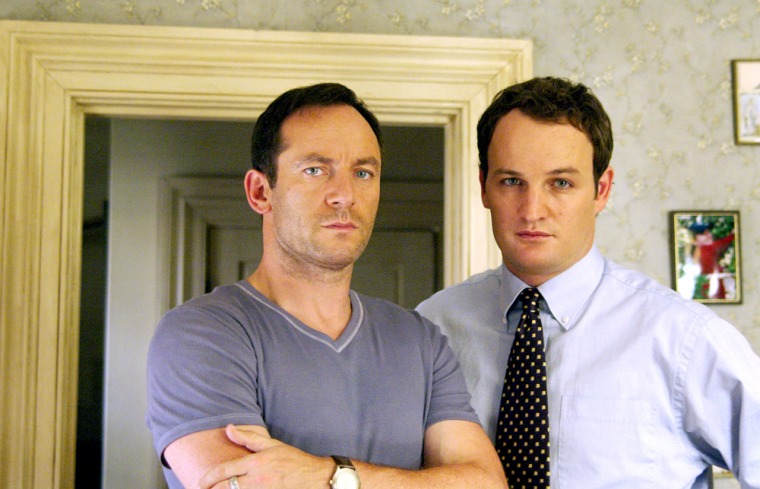"The Sopranos” has it all — the thuggish yet sympathetic mob-member lead character, the female shrink who treats him, a wife, mistresses and a club where the guys hang out. And Italian food everywhere, from the dining table to Satriales’s to Artie Bucco’s restaurant and back to the family fridge for reheats of leftovers.
The acclaimed HBO series even begot “The Sopranos Family Cookbook.”
Could the magic food deity that poured a golden parmesan bounty of riches on “The Sopranos” do the same for the Irish?
Viewers, set your oven timers for “Brotherhood,” the new Showtime drama debuting Sunday about two Irish-American brothers, one a politician, the other a mobster.
And while food hardly occupies the screen in “Brotherhood” the way it does in “The Sopranos,” audience interest in every element of a television show — including the food — tends to surge when the show’s a hit. Critics seem to be predicting just that for “Brotherhood.” Hollywood Reporter, a trade publication, says the show “deserves every boost it can get. It's that good. No, it's better.” The New York Times calls it “exceptionally good.”
"Brotherhood" is just the beginning, with more Irish-flavored offerings to come. On NBC's midseason television roster is "The Black Donnellys," and slated for release this year is "The Departed," a film directed by Martin Scorsese and starring Matt Damon and Leonardo DiCaprio. (MSNBC.com is a joint venture of Microsoft and NBC Universal News.)
"If these projects are successful, there will be increased interest in Irish culture, including the food," says Blake Masters, creator of "Brotherhood," executive producer and the writer of about half the program's episodes.
Sara Moulton, executive chef at Gourmet magazine” and food editor of ABC’s “Good Morning America,” knows what media attention can do for all things edible from her years as a chef host on the Food Network.
“If a show is a smash, and food is part of it, the food will become of great interest,” she says. “The popularity of a show has a huge impact on the popularity of the food.”
Moulton, author of “Sara’s Secrets for Weeknight Meals,” concedes that Italian food didn’t need “The Sopranos” to elevate it, noting “it’s almost in a league by itself.” In contrast, many would argue over whether Irish cuisine even exists.
Jimmy Neary, the Irish owner of “Neary’s,” a restaurant in Manhattan, said steaks and chops often are considered "Irish cuisine," although he also named corned beef and cabbage, Irish beef stew and Irish lamb stew. His eatery offers a few Irish staples but not his home country’s colcannon, a mashed potatoes and kale combo.
If “Brotherhood” does provoke fans to embrace their inner Irish foodie, however, the more readily available products from retailers might become standard fare.
One enterprise that could benefit is Tommy Moloney's, a retailer in New York's borough of Queens. Tommy Moloney’s manufactures Irish food fare, especially meat products, importing Irish ingredients and spices and combining them with domestic meat.
Sales director Brendan Keyes says the main buyers of the products — Irish sausage, bacon and traditional black-and-white pudding — are first and second-generation Irish-Americans.
“It’s the closest thing to an authentic Irish product you can get in America,” says Keyes. In the two years they’ve been in business, he says, “sales have increased drastically.”
The company also sells grocery items at its store and over the Internet.
Keyes agrees that a television program like “Brotherhood” can create curiosity about the food the characters eat, depending how big an audience the show gets. When it comes to actual items on television, “people want to know where did they get it, and is it authentic?”
That information could come in handy if, in the fashion of “The Sopranos,” Irish “Brotherhood” eating-and-watching parties take off.
The food viewers bring better be good. Even though most episodes show a Sunday dinner, "the food tends to be mediocre," Masters says. "The matriarch of the show is a terrible cook. Someone thinks her roast pork is lamb."
